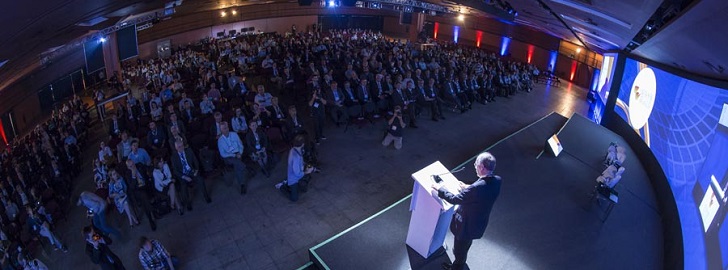Rio Oil & Gas 2016 ends with important announcements for the sector

The 18th edition of the Rio Oil & Gas, which took place last October, ended with important announcements for the oil & gas sector. The news included the establishment of a new E&P policy, replacing that one in force since 2003. The main changes envisaged in the new model, due to be released next March, are more flexible local content rules, the end of the single operator clause and the establishment of a bidding round calendar for the following five years, with at least one bidding process per year. The announcement was made by Márcio Félix, Oil, Natural Gas and Renewable Fuels Secretary for the Ministry of Mines and Energy.
The new government’s policy has a clear aim: to make Brazil more competitive and, therefore, to attract new investments to the country. “This is a very convenient moment for us, in which we want to address the spectrum of the industry on all fronts, in order to find solutions and alternatives for the development [of the entire oil and gas chain]”, said the secretary.
Magda Chambriard, general director for the ANP (Brazilian National Agency of Petroleum, Natural Gas and Biofuels), also made announcements. She said that the 4th bidding round for marginal fields and mature basins will take place next March, with the offering of 13 inactive areas in the Recôncavo, Potiguar and Espírito Santo basins.
In turn, the ministry of Mines and Energy, Fernando Coelho Filho, signalled the extension of the Repetro customs regime. Rose Hofmann, Ibama’s new environmental licensing director, said that she wants to ensure faster, simplified, standardized and electronically-enabled environmental licensing for the industry.
Moreira Franco, secretary for the investment partnership program, assured that one of the government’s goals is to strengthen the oil and gas sector; and Pedro Parente, Petrobras’ president, announced a model to negotiate refineries along with pipelines, terminals and other logistics ventures.
“The Rio Oil was a great success. It showed exuberant figures, but I would like to highlight the opening ceremony, with President Temer, ministers and governors. We have never had such important attendees”, celebrated Jorge Camargo, president of the Brazilian Institute of Petroleum, Gas and Biofuels (IBP).
Above all, Camargo pointed out that the speeches showed that the current government “will be part of the solution”, rather than a problem. The executive mentioned the positive signs for the extension of Repetro customs regime and for a focused and feasible local content policy.
This edition of Rio Oil & Gas highlighted an thorough program that included 12 simultaneous events, an in-depth debate on the main issues in the sector and the business expectation of BRL 181 million in the following 12 months of the Onip-Sebrae business roundtable. The event registered 34,200 visitors, 3,920 delegates, more than 100 speakers, 540 exhibitors and 300 journalists. In the digital environment, the Rio Oil & Gas reached an audience of 3 million people.